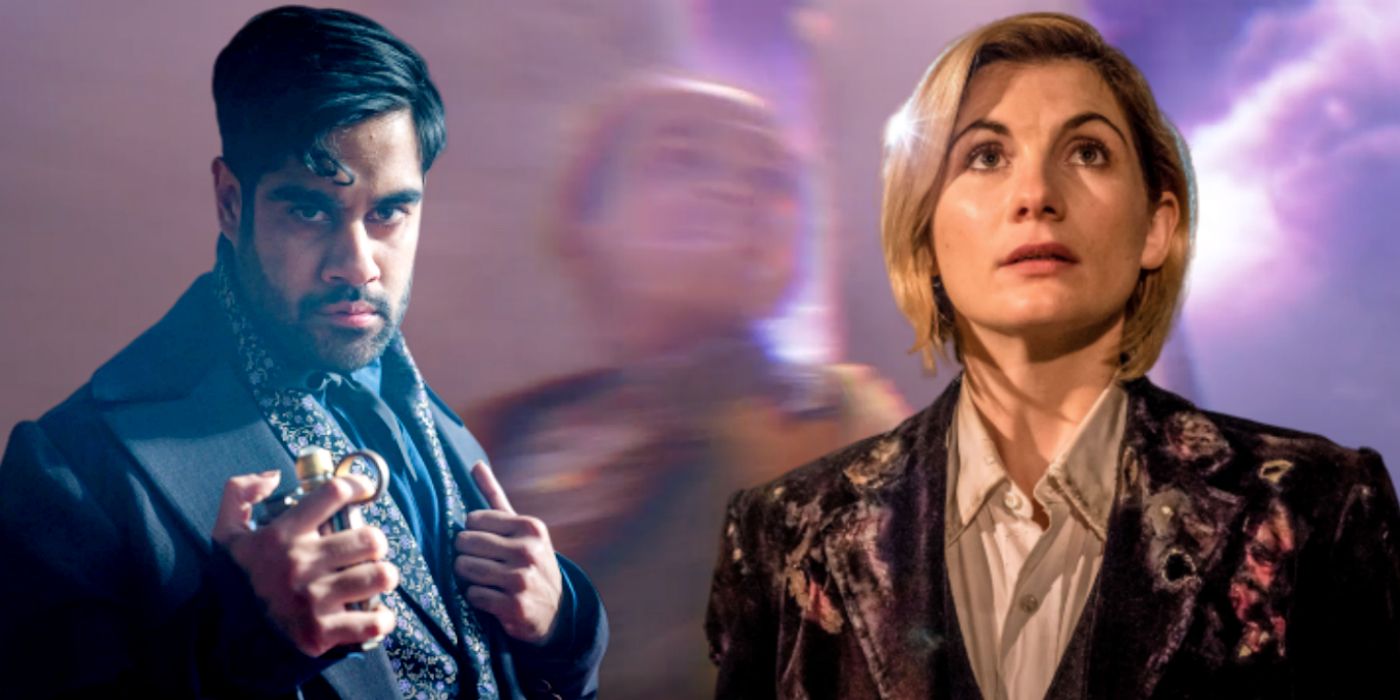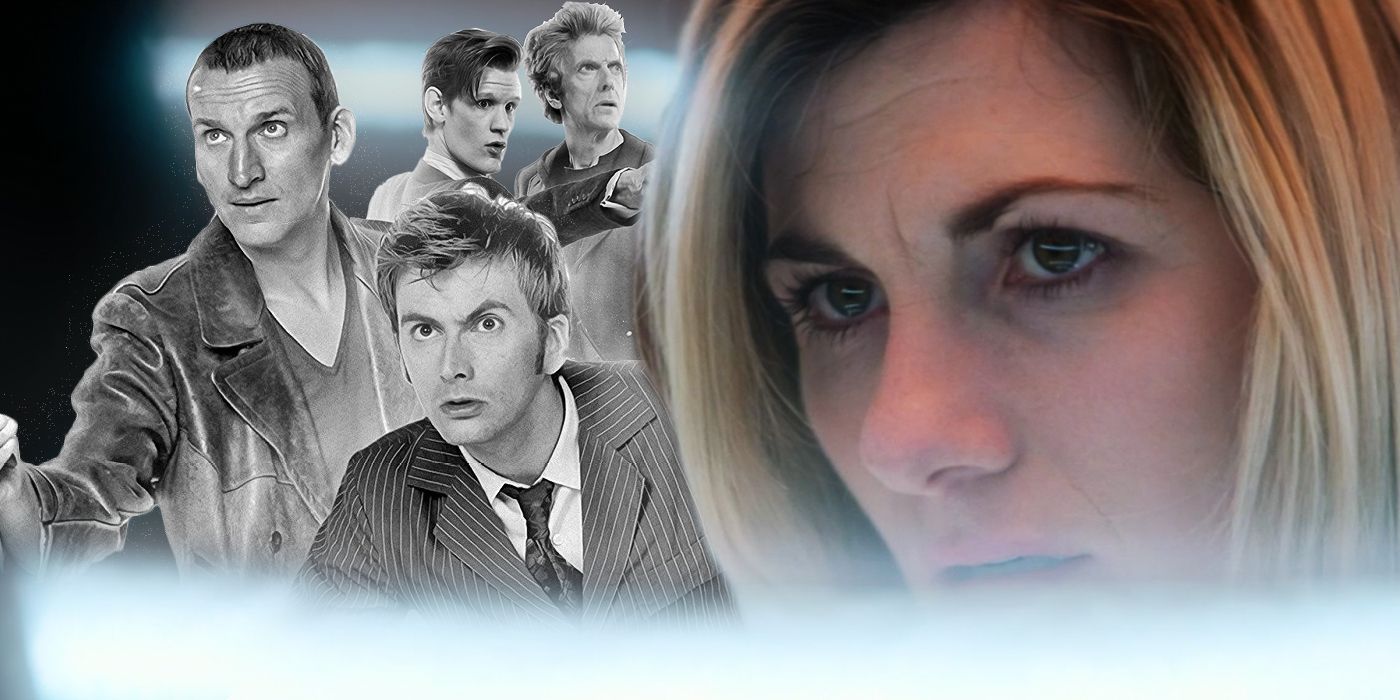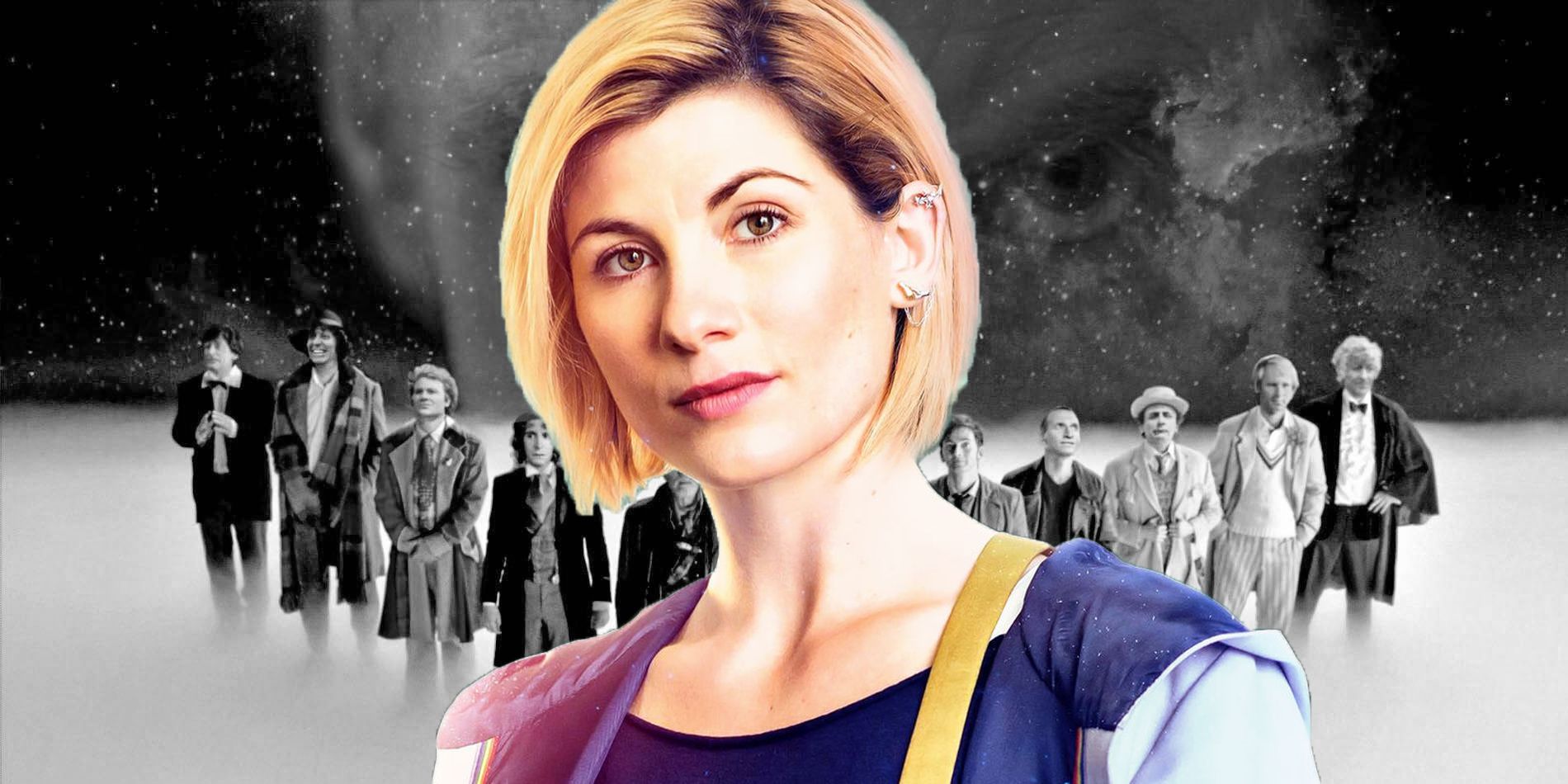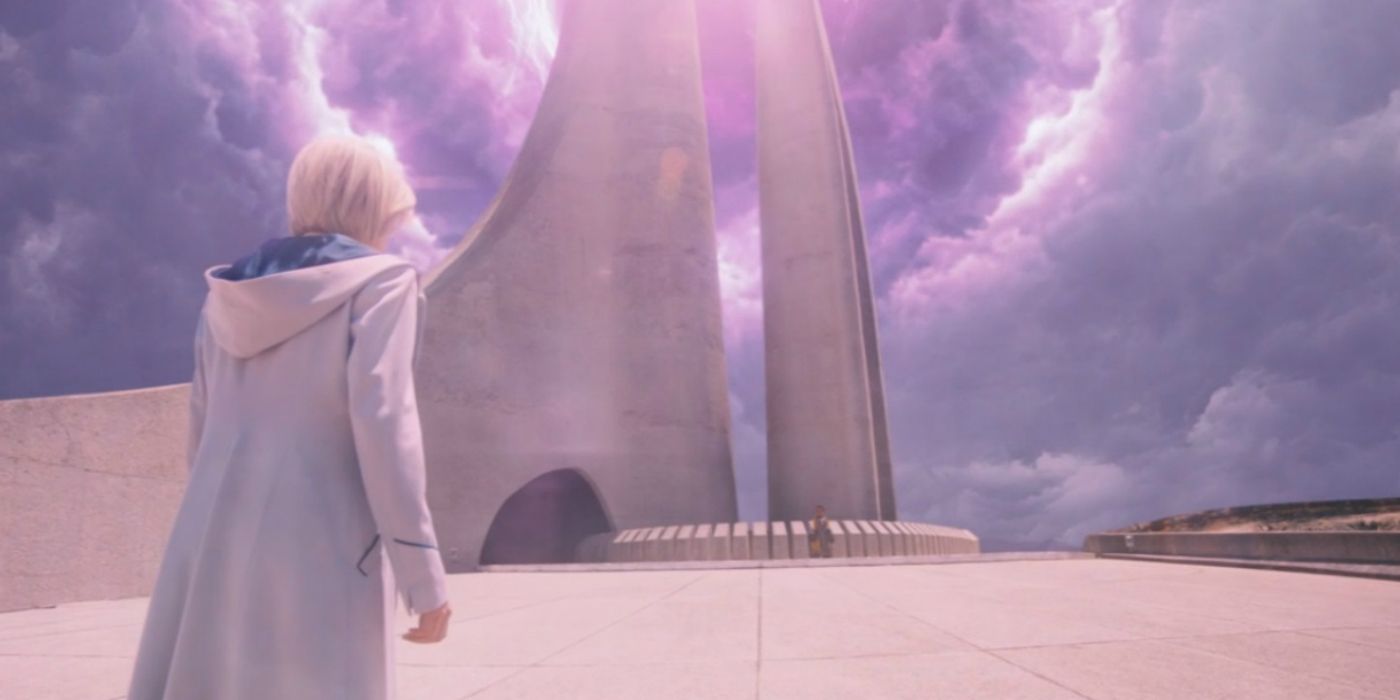Doctor Who's Timeless Child twist changed everything - and nothing at all. Showrunner Chris Chibnall had promised that, after Doctor Who season 12, nothing would ever be the same again. In case viewers hadn't got the message, he even had the Master declare as much in an amusingly meta touch.
It all came to a head in the Doctor Who season 12 finale where the Doctor learned that she was in fact the Timeless Child - an ancient being who apparently originated from another universe and who had become the base genetic code for the entire Time Lord race. What's more, the Doctor never need fear running out of regenerations again because the regeneration cap was something added by the Time Lords, and the Doctor herself has no such limit.
Doctor Who fandom has largely been torn in two by this retcon. Some appreciate it, linking it to clues in the classic series and long-forgotten plot threads. For others, however, it's a step too far; they're comfortable with the idea of the Doctor as a Renegade Time Lord, and they dislike this dramatic change in her status. But in truth they may be overreacting because Chris Chibnall's retcon may not be quite so dramatic and transformative as he's stated.
The Timeless Child Is A Huge Change To Doctor Who Canon
On the face of it, the Timeless Child is probably the biggest change in Doctor Who lore since the Time Lords themselves were introduced in 1969's "The War Games." "They lied to us," the Master taunted the Doctor. "Everything we were told was a lie. We are not who we think." He might as well have been addressing the viewers directly, because 51 years of continuity has just been wiped away. The Doctor's entire origin story - revealed one drip at a time in the classic series, and further built upon in the modern relaunch - was a lie. The Doctor is no Renegade Time Lord at all; she isn't even a Time Lord. William Hartnell wasn't the first Doctor, and assuming Jo Martin's Doctor is a past incarnation, he may not even have been the first one to call himself the Doctor.
Oddly enough, Chris Chibnall's Timeless Child retcon fits surprisingly well with the old canon if you take a little creative license and assume regenerations scramble the Doctor's neurons, meaning some incarnations knew more about their past than others. That would explain an odd scene in "The Brain of Morbius," where the Doctor engaged in a psychic duel with the Renegade Time Lord Morbius; faces of past incarnations flashed up on the screen in reverse order, and eight faces appeared after Hartnell's. Producer Philip Hinchcliffe openly admitted he'd intended these to be past Doctors. Years later, script editor Andrew Cartmel added lines of dialogue to episodes in the Sylvester McCoy era, attempting to add a new element of mystery to the Doctor by suggesting he'd been there at the birth of the Time Lord race. He planned something very different from the Timeless Child, of course, but the show was cancelled before he had the time to develop the ideas.
But the Timeless Child clashes significantly with the post-2005 Doctor Who relaunch, especially when Stephen Moffat served as showrunner. It sits uncomfortably with the Matt Smith era's focus on the Doctor's birth name, which was known only to the Time Lords and River Song. It's difficult to say whether that name is more significant now or less; it could potentially be a clue to the Doctor's true origin or alternatively just a random name plucked out of the air by Tecteun, the Doctor's adopted Gallifreyan mother. Other stories in the Matt Smith era are even more problematic now: why did River Song have to sacrifice regeneration energy to save the Doctor's life if the Doctor actually has unlimited regenerations anyway? And what really happened when the Time Lords infused the Doctor with regeneration energy in "The Time of the Doctor?" Even odder, in "The Name of the Doctor" Clara entered the Doctor's personal time-stream and experienced all of his personal history in every incarnation, and yet she didn't uncover a single hint of the Timeless Child. The sheer scale of the continuity problems perfectly illustrates the magnitude of the change Chris Chibnall has just made.
The Timeless Child Changes Nothing About The Doctor
And yet, for all this is the case, the Timeless Child changes nothing about the Doctor herself. The Doctor's origin story doesn't actually matter at all; what matters is who she chooses to be and what she chooses to do with her freedom to travel through time and space. That's why the show didn't even begin to flesh out the Doctor's backstory until six years after the first episode aired; writers and showrunners alike didn't really feel it was necessary to explore it. Of course, once the Time Lords were introduced, it was inevitable they'd be fleshed out, but key aspects of Time Lord mythology were only added when a story needed it, including the famous regeneration cap, which was only written into Doctor Who lore because Robert Holmes needed a Time Lord President to die in 1976's "The Deadly Assassin." But the fact remains the bulk of Doctor Who stories have absolutely nothing to do with the Time Lords at all, meaning the backstory is irrelevant to them.
Oddly enough, the Doctor Who season 12 finale unwittingly stresses that its own retcon isn't really that big a deal. The Master expects the truth about the Timeless Child to break the Doctor, but instead she pushes past it, and realizes she is still the same person. "Have you ever been limited by who you were before," Jo Martin's Doctor asked in a Matrix vision. The Doctor has always been more than just a Time Lord simply because she refuses to stand by and watch tragedy unfold, but instead intervenes. The Timeless Child doesn't change that; it just explains why she was never able to fit in with Gallifreyan society. What's more, given Gallifrey has been destroyed (again), this explanation is pretty much irrelevant. The Doctor will never confront the Time Lords about their duplicity because they have been wiped out, even assuming they too hadn't been deceived about the Doctor's origins by their founding fathers.
The Lack Of Change Is Why The Timeless Child Twist Doesn't Work
Fundamentally, this is why the Timeless Child retcon doesn't work. A good plot twist isn't important because it overturns 51 years of canon and leaves some viewers reeling in shock. Rather, a plot twist works because it exerts an influence upon a character, propelling her on some sort of personal journey. The Doctor may have learned everything she thought was true about her past was a lie, but it changes nothing about who she is. In narrative terms, the Timeless Child is deeply unsatisfying; the retcon may divide the fanbase, but the Doctor at the end of "The Timeless Children" is fundamentally the same person she was at the beginning of the episode. The odd thing is, Chibnall himself doesn't seem to have realized this problem. "This is what you’re always looking for in a series finale," he told The Radio Times. "The way the big, universe-threatening story impacts on the personal lives of your characters. And categorically that’s what’s happening in this episode." Except, categorically, the Timeless Child retcon doesn't affect the Doctor's personal life at all.
It's possible Chris Chibnall has plans to redeem this retcon perhaps by launching the Doctor on a quest to regain her forgotten memories and even discovering her true race. Indeed, Chibnall has hinted as much, suggesting the Doctor Who season 12 finale answered just some of the Timeless Child questions. Still, that doesn't make the twist good in itself; it just means it can be improved upon with time.




